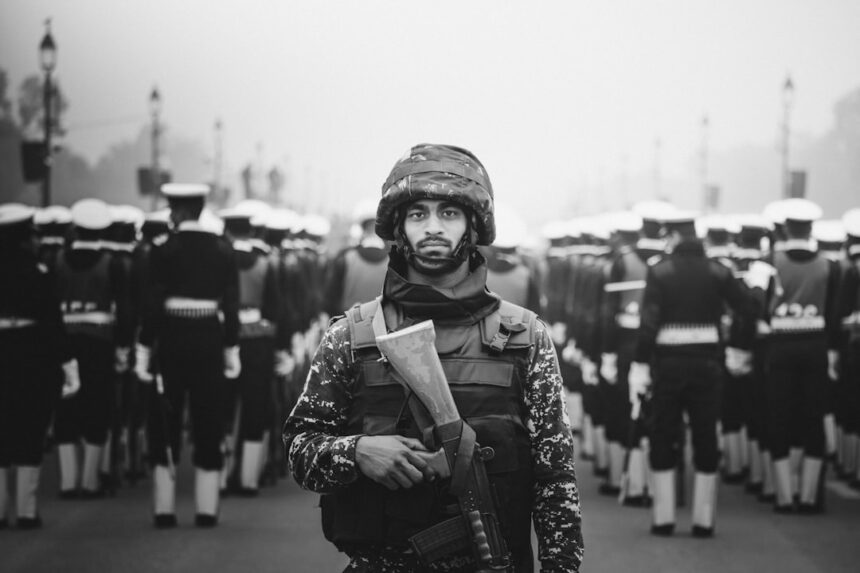Military humility is a multifaceted concept that transcends mere modesty or self-effacement. It embodies a deep recognition of one’s limitations and an appreciation for the contributions of others. In the military context, humility is not about diminishing one’s achievements or capabilities; rather, it is about acknowledging that leadership is a collective endeavor.
This understanding fosters an environment where individuals feel valued and empowered to contribute their unique skills and perspectives. The essence of military humility lies in the ability to listen, learn, and adapt, which are crucial traits in high-stakes environments where decisions can have profound consequences. Moreover, military humility encourages leaders to prioritize the mission and the welfare of their subordinates over personal accolades.
This selflessness is vital in cultivating a culture of trust and respect within military units. When leaders exhibit humility, they create a safe space for open communication, allowing team members to voice their opinions and concerns without fear of retribution.
Ultimately, understanding military humility involves recognizing its role as a cornerstone of effective leadership and operational success.
Key Takeaways
- Military humility involves recognizing one’s limitations and being open to learning and growth.
- Humility is essential for effective leadership as it allows leaders to listen, learn, and empathize with their team members.
- Humility fosters teamwork and collaboration in the military by creating an environment where everyone’s contributions are valued.
- Humility positively impacts decision-making and problem-solving by encouraging leaders to consider diverse perspectives and seek input from others.
- Building trust and respect through humble leadership is crucial for creating a cohesive and resilient military unit.
The role of humility in effective leadership
Humility plays a pivotal role in effective leadership, particularly within the military framework. Leaders who embody humility are often more approachable and relatable, fostering an atmosphere where subordinates feel comfortable sharing their insights and concerns. This openness is essential in military operations, where the stakes are high, and the need for clear communication is paramount.
A humble leader values input from all ranks, understanding that the best solutions often arise from collaborative efforts rather than unilateral decisions. This approach not only enhances team cohesion but also empowers individuals to take ownership of their roles. Furthermore, humble leaders are more likely to admit their mistakes and learn from them.
This willingness to acknowledge shortcomings sets a powerful example for others, promoting a culture of accountability and continuous improvement. In the military, where the consequences of errors can be dire, this trait is invaluable. Leaders who demonstrate humility inspire their teams to embrace challenges with resilience and adaptability, knowing that failure is not a reflection of their worth but an opportunity for growth.
Thus, humility becomes a catalyst for effective leadership, driving teams toward success through shared purpose and mutual respect.
How humility fosters teamwork and collaboration in the military

In the military, teamwork and collaboration are essential for mission success, and humility serves as a foundational element in fostering these qualities. When leaders exhibit humility, they create an environment where every team member feels valued and respected. This sense of belonging encourages individuals to contribute their ideas and expertise freely, leading to more innovative solutions and strategies.
Humble leaders recognize that no single person has all the answers; instead, they actively seek input from diverse perspectives, which enhances problem-solving capabilities within the unit. Moreover, humility promotes a culture of mutual support among team members. When individuals see their leaders prioritizing collaboration over competition, they are more likely to adopt similar behaviors.
This shift in mindset cultivates strong interpersonal relationships built on trust and camaraderie. In high-pressure situations, such as combat or critical missions, this bond becomes crucial as team members rely on one another for support and encouragement. Ultimately, humility acts as a glue that binds military personnel together, enabling them to work cohesively toward common goals while navigating the complexities of their environment.
The impact of humility on decision-making and problem-solving
| Metrics | Findings |
|---|---|
| Improved Collaboration | Humility leads to better teamwork and collaboration among team members. |
| Enhanced Creativity | Humility fosters an environment where individuals feel comfortable sharing ideas and thinking outside the box. |
| Effective Problem-Solving | Humility allows for open-mindedness and willingness to consider alternative solutions, leading to more effective problem-solving. |
| Reduced Conflict | Humility can help in reducing conflicts as individuals are more open to listening and understanding different perspectives. |
The impact of humility on decision-making and problem-solving within the military cannot be overstated. Humble leaders approach challenges with an open mind, recognizing that their perspective is just one among many. This openness allows them to consider alternative viewpoints and solutions that may not have been initially apparent.
In high-stakes situations where quick decisions are necessary, this ability to synthesize diverse inputs can lead to more effective outcomes. By valuing the insights of others, humble leaders enhance the quality of their decisions and foster a culture of collective intelligence. Additionally, humility encourages leaders to engage in reflective practices that enhance their decision-making processes.
By acknowledging their limitations and seeking feedback from peers and subordinates, they can identify blind spots and areas for improvement. This iterative approach not only strengthens individual decision-making skills but also contributes to the overall effectiveness of the unit. In essence, humility transforms decision-making from a solitary endeavor into a collaborative process that leverages the strengths of the entire team, ultimately leading to better problem-solving capabilities in complex military operations.
Building trust and respect through humble leadership
Trust and respect are cornerstones of effective military operations, and humble leadership plays a critical role in cultivating these essential qualities. When leaders demonstrate humility, they signal to their subordinates that they value their contributions and perspectives. This acknowledgment fosters an atmosphere of trust where team members feel safe expressing their thoughts and concerns without fear of judgment or reprisal.
As trust builds within a unit, so does the willingness to collaborate and support one another in achieving common objectives. Moreover, humble leaders earn respect not through authority alone but through their actions and character. They lead by example, showing integrity and accountability in their decisions and interactions with others.
This authenticity resonates with subordinates, who are more likely to respect leaders who prioritize the well-being of their team over personal gain or recognition. As respect deepens within the unit, it creates a positive feedback loop that reinforces trust and collaboration, ultimately enhancing overall mission effectiveness.
Overcoming challenges and adversity with humility

In the face of challenges and adversity, humility emerges as a powerful asset for military leaders and their teams. Humble leaders approach difficulties with a mindset that embraces learning rather than defensiveness.
This perspective encourages team members to adopt a similar attitude, fostering resilience in the face of adversity. Furthermore, humility allows leaders to seek assistance when needed rather than attempting to shoulder burdens alone. By acknowledging their limitations and reaching out for support from peers or subordinates, they model vulnerability and strength simultaneously.
This behavior not only strengthens bonds within the team but also empowers individuals to step up during challenging times. In essence, humility equips military personnel with the tools necessary to navigate obstacles effectively while maintaining morale and cohesion.
The connection between humility and resilience in the military
The connection between humility and resilience in the military is profound and multifaceted. Resilience—the ability to bounce back from setbacks—often hinges on one’s capacity for self-reflection and adaptability. Humble leaders exemplify these traits by recognizing their own vulnerabilities while remaining committed to growth and improvement.
This self-awareness enables them to navigate challenges with grace and determination, inspiring their teams to do the same. Moreover, humility fosters a supportive environment where individuals feel empowered to share their struggles openly. In high-pressure situations typical of military life, this culture of openness can significantly enhance resilience among team members.
When personnel know they can rely on one another for support without fear of judgment, they are more likely to persevere through difficulties together. Thus, humility serves as a catalyst for resilience within military units, enabling them to withstand adversity while maintaining focus on their mission objectives.
Cultivating a culture of humility within the military
Cultivating a culture of humility within the military requires intentional effort at all levels of leadership. It begins with training programs that emphasize the importance of self-awareness, active listening, and empathy in leadership development. By instilling these values early on in a service member’s career, military organizations can create an environment where humility is not only encouraged but expected.
Additionally, leaders must model humble behavior consistently to reinforce this culture throughout their units. This includes acknowledging mistakes openly, seeking feedback from subordinates regularly, and celebrating collective achievements rather than individual accolades alone. When leaders prioritize humility in their actions, they set a powerful example for others to follow—creating a ripple effect that permeates the entire organization.
Ultimately, cultivating a culture of humility enhances teamwork, trust, and overall effectiveness within military operations.
The benefits of humility in building strong relationships with allies and partners
In an increasingly interconnected world, building strong relationships with allies and partners is essential for military success—and humility plays a crucial role in this process. Humble leaders approach international collaborations with an open mind and a willingness to learn from others’ experiences and perspectives. This attitude fosters mutual respect among allies, paving the way for more effective communication and cooperation during joint operations.
Moreover, humility allows military leaders to navigate cultural differences with sensitivity and understanding. By acknowledging that other nations may have different approaches or priorities, humble leaders can engage in constructive dialogue that strengthens partnerships rather than creating friction. This collaborative spirit enhances interoperability among allied forces—ultimately leading to more successful joint missions while reinforcing global security efforts.
Embracing humility as a tool for personal and professional growth in the military
Embracing humility as a tool for personal and professional growth is vital for service members at all stages of their careers. Humility encourages individuals to seek feedback actively—whether from peers or superiors—and view constructive criticism as an opportunity for development rather than a personal affront. This mindset fosters continuous learning—a critical component in an ever-evolving military landscape where adaptability is paramount.
Furthermore, humble service members are more likely to engage in mentorship relationships—both as mentors themselves and as mentees seeking guidance from others’ experiences. These relationships facilitate knowledge transfer across ranks while promoting personal growth through shared insights into challenges faced throughout one’s career journey. Ultimately, embracing humility empowers individuals within the military to pursue excellence while remaining grounded in their values.
The enduring legacy of humble military leaders throughout history
The enduring legacy of humble military leaders throughout history serves as a testament to the power of humility in shaping effective leadership styles across generations. Figures such as General Dwight D. Eisenhower exemplified this quality by prioritizing collaboration over personal glory during World War II—a strategy that ultimately led to victory against formidable adversaries.
His ability to unite diverse forces under a common cause showcased how humble leadership could transcend individual egos for greater good. Similarly, leaders like General Colin Powell have left indelible marks on military history through their commitment to servant leadership principles rooted in humility—emphasizing accountability while valuing input from all ranks within their organizations. These examples illustrate how humble leadership not only fosters success on the battlefield but also cultivates lasting relationships built on trust among service members—creating legacies that inspire future generations.
In conclusion, military humility is not merely an admirable trait; it is an essential component of effective leadership that fosters teamwork, enhances decision-making processes, builds trust among allies, cultivates resilience during adversity—and ultimately shapes enduring legacies within armed forces worldwide. By embracing this powerful quality at all levels—from individual service members up through senior leadership—military organizations can continue striving toward excellence while remaining grounded in values that promote unity amidst diversity across ranks—and beyond borders alike.
In the realm of military leadership, the concept of humility is often overshadowed by the traditional emphasis on strength and decisiveness. However, embracing humility can significantly enhance decision-making and foster a more cohesive team environment. An article that delves into this topic is available on the website “In the War Room.” This piece explores how humility in military leaders can lead to more effective strategies and improved morale among troops. For further insights, you can read the related article by visiting In the War Room.
FAQs
What is military humility?
Military humility refers to the willingness of military leaders and personnel to acknowledge their limitations, learn from their mistakes, and show respect for others, regardless of rank or position.
Why is military humility important?
Military humility is important because it fosters a culture of continuous improvement, encourages open communication, and promotes effective teamwork within the military. It also helps to prevent arrogance and complacency, which can be detrimental to military operations.
How does military humility benefit the military organization?
Military humility benefits the organization by promoting a culture of learning and adaptability, improving decision-making processes, and enhancing the overall effectiveness and cohesiveness of military units.
What are some examples of military humility in action?
Examples of military humility in action include leaders admitting their mistakes, seeking input from subordinates, and showing respect for the expertise and experiences of others. It can also be demonstrated through a willingness to learn from past failures and a commitment to ongoing self-improvement.
How can military humility be cultivated within the military?
Military humility can be cultivated within the military through leadership by example, training and education programs that emphasize the importance of humility, and the establishment of a supportive and inclusive organizational culture. It can also be reinforced through feedback mechanisms that encourage open and honest communication.




